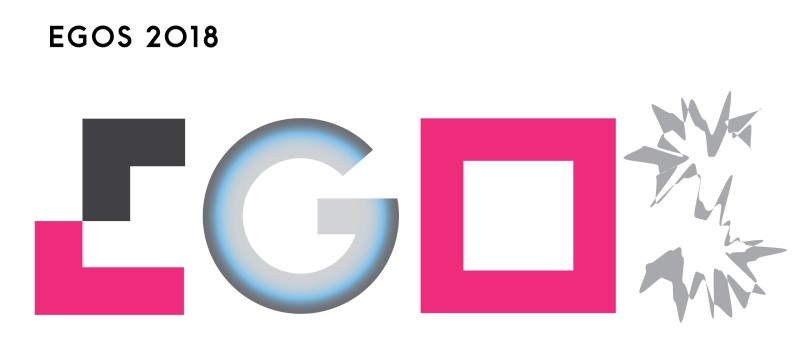Sub-theme 61: Smart and Liveable Cities: Organizing Urban Governance and Leadership
Call for Papers
Contemporary narratives and discourses about managing, governing and developing cities could be divided into two competing
streams. The first one (Smart Cities) is very prominent in mass media, tech companies and tech communities; whereas the second
one (Liveable Cities) is mostly enacted on social media platforms, in cultural branding initiatives, social movements, grassroots
initiatives, and (virtual) communities. Both streams struggle for getting a voice in the discourses as well as in mediascapes.
Technology, planning and urban architecture have always been closely related in allowing and limiting both what
can be controlled and what self-organizes and emerges in cities. Since the 1990s, urban and regional planning are enabled
and constrained by information technologies and the narratives they become wrapped in. “Smart cities” and “liveable cities”
make no exception since at least two distinct narratives polarize opinions and debates: one is derived from Spatial Data Infrastructures
(top down, state led efforts); the other emerges from participation and user-generated content (social media, voluntary geographic
information, e-governance systems, etc.). Smart cities seem to be leaning toward the former, but grass-root movements can
be quite forceful in using alternative narratives and deploying technologies and open data accordingly.
Cities
can be analyzed as eco-systems that are emerging and developing in the context of global economy with new forms of organizing.
In “city action nets”, organizing in general is an emergent property which illuminates new forms of connecting mechanisms
(Czarniawska, 2002; 2014). Urban development is in this sense closely related to an understanding of leadership as social
processes emerging through the interactions of multiple actors. “Relational leadership” (Uhl-Bien, 2006) and “distributed
leadership” (Bolden, 2011) open up for self-organizing, thereby creating new opportunities in the way citizens are empowered
when designing and co-creating their cities of today and tomorrow.
In parallel, there is a search for new
public governance approaches assembled by co-creative practices (Torfing & Triantafillou, 2016). These approaches are
often inspired by leadership concepts where leadership is seen as some kind of participatory democracy in democratic governance
networks (Sørensen & Torfing, 2007).
Urban research has also investigated avenues through which culture
and creativity can raise the imaginative capability of citizens and harness opportunities tied to what can be called culture-driven
growth. The success of co-creating urban strategies within and between the public sector, institutions, city administrations,
political bodies, business, the civil society and not least the citizens seems very much dependent on a synthesis of bottom-up
and top-down activities. This calls for a holistic approach that has the potential to foster involvement, to embrace both
diversity and equality in communities and cities, and to cross institutional borders, e.g. by linking arts and other creative
initiatives to co-creation (Wåhlin et al., 2016).
Our sub-theme is aiming at investigating the interrelation
of the expected and the unexpected on the urban scale by looking at the sometimes surprising outcomes of the interplays of
change and stability, innovation and technology, spaces and spacing, planning and creativity, organization and spontaneity.
In order to broaden the predominant technological perspective on smart cities we invite theoretical as well as empirical papers
investigating the role of all types of stakeholders when it comes to developing and enacting smart and livaeble cities.
Papers may address, but are not limited to, research on the following themes and topics:
Discursive construction of “Smart Cities”, “Agile Cities” and “Liveable Cities”
Narrating and organizing the city in governance and organization
Interplay between urban architecture, planning and organizing
Interplay between urban governance, leadership and organizing
Interplay between technology, communication and organizing
The co-creative practices of new public governance
The potential of creative, cultural and artistic interventions
The (forgotten?) civil society and the (lost?) citizen
References
- Bolden, R. (2011): “Distributed leadership in organizations: A review of theory and research.” International Journal of Management Reviews, 13, 251-269.
- Czarniawska, B. (2002): A Tale of Three Cities: Or the Glocalization of City Management. Oxford: Oxford University Press.
- Czarniawska, B. (2014): A theory of organizing. Cheltenham: Edward Elgar.
- Sørensen, E., & Torfing, J. (eds.) (2007): Theories of Democratic Network Novernance. Basingstoke: Palgrave MacMillan.
- Torfing, J., & P. Triantafillou (eds.) (2016): Enhancing Public Innovation by Public Governance. Cambridge: Cambridge University Press.
- Uhl-Bien, M. (2006): “Relational leadership theory: exploring the social processes of leadership and organizing.” Leadership Quarterly, 17, 654–676.
- Wåhlin, N., Kapsali, M., Näsholm, M.H., & Blomquist, T. (2016): Urban Strategies for Culture-Driven Growth: Co-Creating a European Capital of Culture. Cheltenham: Edward Elgar.


